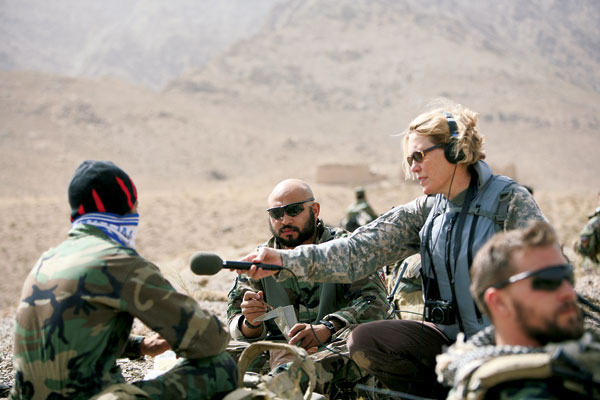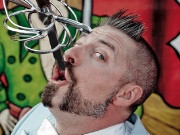Photograph courtesy Jackie Northam
As told to Shane Harris.
I was with Reuters TV during the first Gulf war from 1990 to 1991, and I spent several months in Saudi Arabia watching the US war machine build up. We got the gas masks, the chemical suits. At night when the Scud missiles were coming in, you were supposed to go into the basement. We went up to the roof. I wondered what the hell happened when these things landed. In the press briefings, when you had Norman Schwarzkopf showing all these fantastic videos, it was all too clinical. There was one guy Schwarzkopf joked was “the luckiest man in Iraq,” who drove over a bridge right before it was destroyed.
I realized how lopsided the coverage was. There were hundreds of journalists in Saudi Arabia, getting much of their information from a well-oiled military press camp. I felt we weren’t getting enough information from inside Iraq. We never saw what happens when the missile hits a home or a crowded building. We couldn’t fully gauge the collateral damage. Only subsequently did I get a greater sense of what war is and how awful it could be.
My next conflict was Rwanda in 1994. I was in four days after the genocide started. It was so starkly in contrast to the first Gulf war. You saw the brutality and the violence and the bloodshed. You saw piles of bodies. Pools of blood everywhere. It was pure butchery.
We hitchhiked in, me and a small group of other journalists—that was the only way to get into the country. When you see this mass of humanity going one way and you’re going the other, you know there’s something wrong. These are desperate, dangerous people, and you’re heading into that. There were four of us in the car, and there was a moment when we had to decide whether to continue on or go back. We just decided to put a T-shirt on the antenna, to signal that we weren’t combatants, and keep going.
In Rwanda, I was under shell fire for hours. I was shot at. Once, I had a machete held to my neck. I was a goner, I thought. But a French photographer in the car talked them out of it.
Rwanda was so intensely dangerous, and it took a long time for me to get over that. But this is why I got into the business—I don’t want to be sitting in an office when something happens. I want to be there, with the backdrop of the city burning. The eyewitness to history. That rush hasn’t gone away, though I’m not as naive as I was the first time.
Jackie Northam is the foreign-affairs correspondent for NPR.
This article appears in the November 2011 issue of The Washingtonian.




















